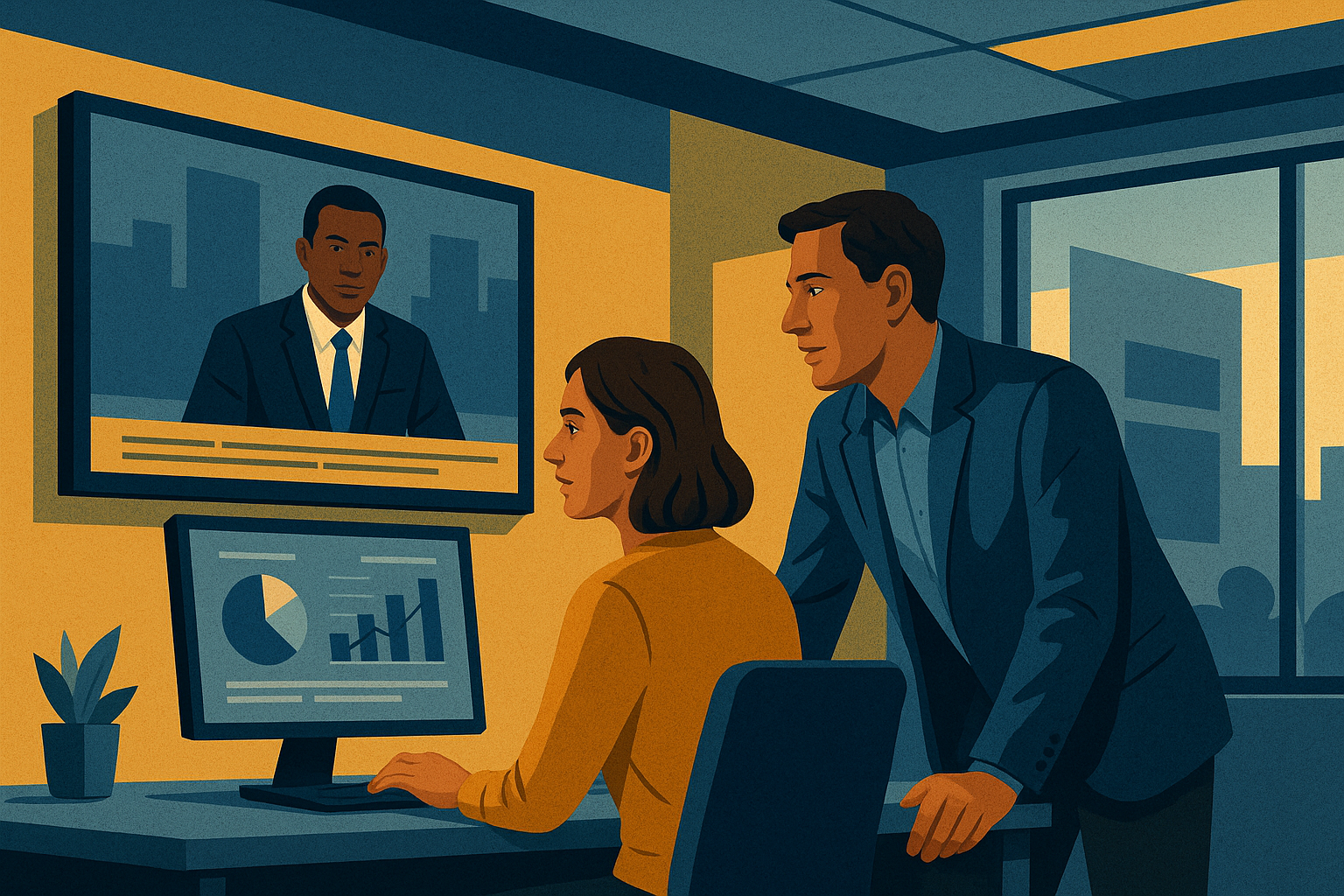A new report from workplace technology specialist Kinly has found that uninspiring office design is pushing young talent out of UK businesses — and accelerating a nationwide shift toward tech-enabled workspaces. The Art of Productivity report, published today, highlights both the risks of dull offices and the growing use of visual technologies to foster creativity, inclusivity, and wellbeing.
The research, which surveyed 1,000 UK office workers and 425 audiovisual (AV) professionals across Europe, paints a stark picture for employers:
– 46% of UK workers aged 24–35 would consider quitting due to poor office design
– 21% say dull workplaces are harming their mental health
– 69% of businesses are now investing in visual technology to reduce stress and improve performance
While over a quarter of businesses (27%) are already using AV to display art and culture, nearly two thirds of AV professionals (65%) believe technology should serve artistic and aesthetic purposes, not just functional ones. According to Kinly, this marks a “clear shift” in how companies are tackling workplace challenges once addressed only through perks or policy.
Tom Martin, CEO at Kinly, commented: “Creative environments fuel performance. Office design is no longer just an aesthetic choice, it’s a strategic one. Businesses have to give employees the tools they need to thrive, and that includes an environment where they feel empowered and inspired. The office has become a second-choice experience for many employees, but implementing technology creatively can and will make a difference, both in terms of boosting office attendance and improving overall output.”
Kinly’s findings suggest that collaboration between AV and HR teams is growing, with 69% now working closely to support employee wellbeing goals. “Three in four AV professionals (75%) say that AV supports staff welfare, with more than half of businesses (51%) now deliberately using technology like digital signage to enhance the overall workplace experience,” the report notes.
The data also points to an expanding role for workplace technology in supporting inclusion. Nearly a third of enterprises (31%) are already using AV to help neurodiverse employees, employing accessibility-focused software and sensory-friendly design. Another 46% plan to adopt such measures.
As hybrid work models persist, technology is also bridging the gap between remote and in-office teams. 71% of AV professionals say AV plays a role in building connection and community across locations. Ben Sheppee, British visual artist, noted: “Remote work has opened up new ways for creative collaboration. But without the right tools, it can actually stifle the creative process and leave people feeling disconnected. As hybrid work becomes the norm, it’s vital that businesses provide the technology to help ideas flow freely, no matter where their teams are.”
The Kinly report comes at a time of heightened competition for skilled employees and ongoing debates over return-to-office mandates. With wellbeing, inclusion, and flexible working high on the corporate agenda, the data suggests that technology-enabled office design may now be a differentiator for UK employers.
The research included a separate AI-powered facial recognition study, tracking real-time emotional responses to digital artworks displayed in the workplace. The findings reinforce the report’s central message: engaging, visually stimulating environments not only improve productivity, but may help retain key talent as workplace expectations continue to evolve.




